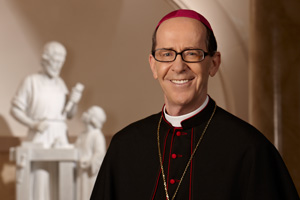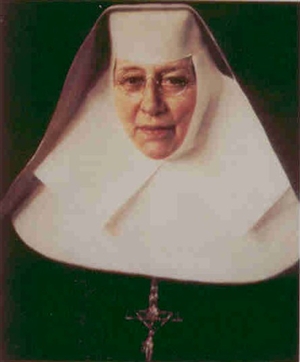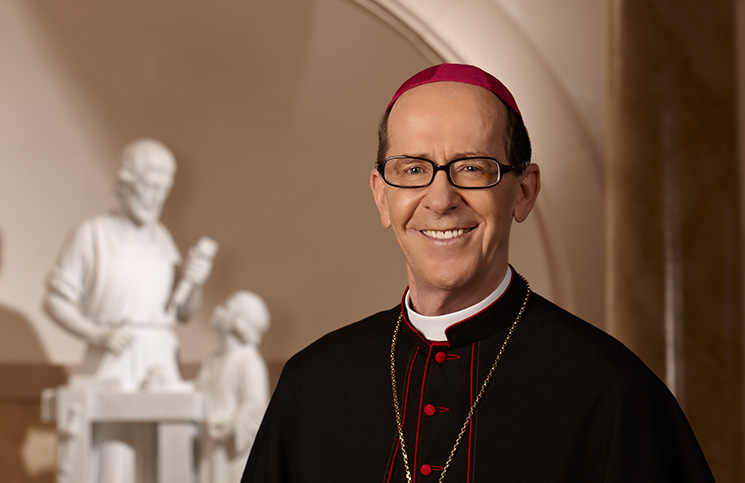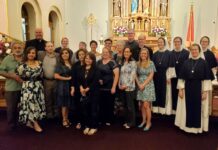Third in a series
“We want an end to services here,” read the sign nailed on a Catholic Church in Beaumont, Texas, in 1922 “We will not stand by while white priests consort with n—– wenches in the face of our families. Suppress it in one week or flogging with tar and feathers will follow.”

This angry threat was not the first that Katharine Drexel received from the Ku Klux Klan and similar groups, and it would not be the last. These outrageous displays of racial prejudice, together with her love of Jesus, were precisely what motivated this high society Philadelphian to found a Religious Institute to work among African and Native Americans in the United States and to begin the first Catholic schools for children from both ethnic groups.
From riches to rags
From the time she was a child, Katharine devoted her heart and soul, her creative mind and strong determination, to serving those who were hungry and disenfranchised. Her parents, among the wealthiest people in Philadelphia, instilled this devotion within her, as on a daily basis they fed the hungry and assisted their needy neighbors. After her parents’ deaths, Katharine became increasingly convinced that God was calling her not only to intensify her charitable work but also to become a religious sister. She felt especially drawn to Eucharistic Adoration and thus to cloistered contemplative life. But a conversation with Pope Leo XIII changed all of that.
At a private audience with the Holy Father in 1887, she spoke effervescently of her desire to leave her wealth and social status behind and to join a cloistered religious community; but she also urged him to send missionaries to Indian and African Americans, describing vividly what she considered to be the poorest, most neglected people in America. To her great surprise, Pope Leo said to her, “Why not be a missionary yourself, my child?”

Those words, spoken by the Vicar of Christ, ignited a fire of love in her heart and set the course for the rest of her life. Out of love for Jesus, she would reverse the “rags to riches” American dream and, embracing a life of religious chastity, obedience and poverty, dedicate herself to the poorest and most overlooked of her brothers and sisters in America. She was convinced that both charity and justice required this commitment and that Catholic education was the key to truly changing their lives.
A fourth vow
To bring good news to the poor, which St. Katharine longed to do, she knew that she and her Sisters had to do more than stand up against injustice; they needed also to exude genuine love and compassion in their relations with one another and with all whom they served.
In his recent Apostolic Letter for the Year of Consecrated Life, Pope Francis speaks of the vital need for this Gospel witness: “In a polarized society, where different cultures experience difficulty in living alongside one another, where the powerless encounter oppression, where inequality abounds, we are called to offer a concrete model of community which, by acknowledging the dignity of each person and sharing our respective gifts, makes it possible to live as brothers and sisters.”
In addition to the traditional vows of poverty, chastity and obedience, Katharine added a fourth vow to be taken by all who would join her, namely “to be the mother and servant of the Indian and Negro races.” As she energetically lived out her vows as a “Sister of the Blessed Sacrament for Indians and Colored People,” she also earned the name for which she became well known, Mother Katharine Drexel.
Joy and courage
As a spiritual mother, she knew the importance of cheerfulness in her daily service of others, handing on to them the joy she found in Christ — especially in the Eucharist. She wrote, “If we wish to serve God and love our neighbor well, we must manifest our joy in the service we render to Him and them. Let us open wide our hearts. It is joy which invites us. Press forward and fear nothing.”
Someone once said that courage is fear that has said its prayers. Certainly, Mother Katharine faced many fearful situations, often arising from religious and racial bigotry. In 1913, for example, the legislature of the state of Georgia tried to prevent the Blessed Sacrament Sisters from teaching black children in the city of Macon. Why? Simply because the Sisters were white and the children black. Mother Katharine won this battle. Two years later, when she purchased an abandoned building in New Orleans to begin what would become the first university in America for African Americans, Xavier University, vandals smashed every one of its windows. But none of these deterred Mother Katharine. In facing these and similar ugly manifestations of bigotry, she found peaceful resolve to stay the course in the daily Eucharistic Sacrifice.
Religious, says Pope Francis, “tend to be on the side of the poor and the powerless, for they know that God Himself is on their side.” Someone said of Mother Katharine that she felt right at home when she was on her knees, either to scrub floors and be at eye level with the smallest child, or on her knees to pour out her heart in love of her beloved Christ, the Bridegroom of the Church.
We learn from St. Katharine Drexel what makes Apostolic Religious Life such a great treasure in the Church, and why we give thanks to God for all those men and women religious in our diocese who carry on this tradition of heroic sacrifice for love of Jesus and for the least of our brothers and sisters.






![[VIDEO] Make Sunday feel like Sunday again](https://www.catholicsun.org/wp-content/uploads/2021/04/2021-YOUTUBE-BISHOP-MESSAGE-THUMBNAIL-ENGLISH-218x150.png)
